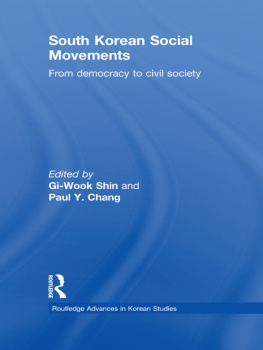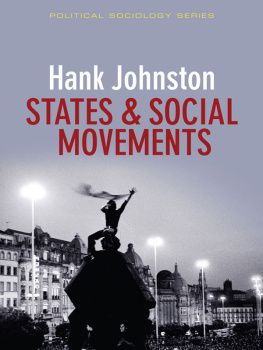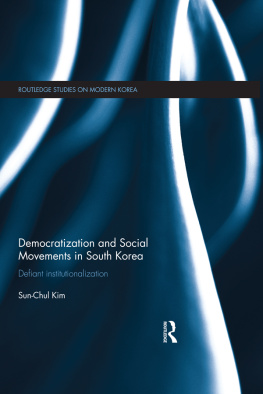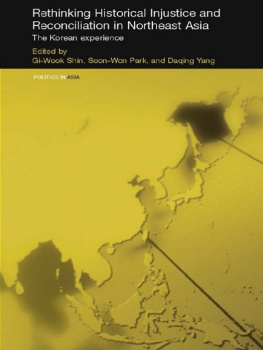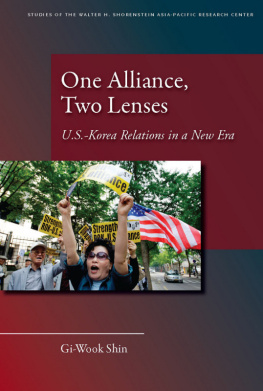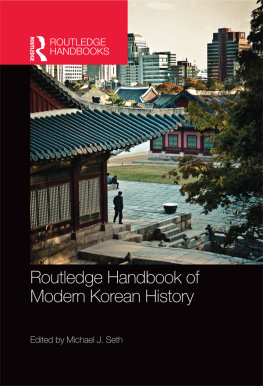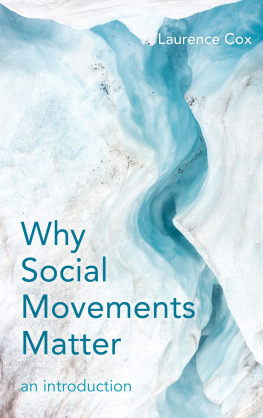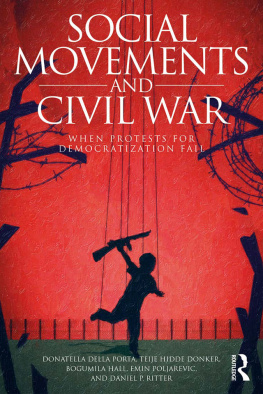Figures
| 2.1 |
| 2.2 |
| 2.3 |
| 2.4 |
| 4.1 |
| 6.1 |
| 6.2 |
| 6.3 |
| 6.4 |
| 6.5 |
| 8.1 |
| 9.1 |
| 9.2 |
| 9.3 |
| 9.4 |
| 9.5 |
| 9.6 |
| 10.1 |
| 10.2 |
| 13.1 |
| 13.2 |
| 13.3 |
| 13.4 |
Tables
| 2.1 |
| 2.2 |
| 2.3 |
| 2.4 |
| 2.5 |
| 2.6 |
| 5.1 |
| 5.2 |
| 6.1 |
| 6.2 |
| 6.3 |
| 7.1 |
| 7.2 |
| 7.3 |
| 7.4 |
| 7.5 |
| 7.6 |
| 8.1 |
| 10.1 |
| 10.2 |
| 13.1 |
| 13.2 |
| A.1 |
| A.2 |
Acknowledgments
This volume was made possible by a generous grant from the Academy of Korean Studies and the Ministry of Education, Science and Technology, South Korea (AKS-2007-CA-2001). This project first took shape at a conference held at the Walter H. Shorenstein Asia-Pacific Research Center, Stanford University, from October 2324, 2008, where the individual chapters were presented. Throughout the course of this project we have benefited from the input of many people and we are thankful to the moderators and discussants at the Stanford conference: Byonggwan Kim, Hoki Kim, Hyejong Kim, Kishik Kim, Hagen Koo, Jongseok Lee, Yumi Moon, Susan Olzak, Seil Park, Daniel Sneider and David Straub. They will see that their insights and suggestions are reflected throughout the different chapters of the volume. We are particularly grateful to Heather Ahn, the Korean Studies Program Coordinator at Stanford University, for her help in organizing the conference and to Sena Kim who compiled the volumes bibliography. We were fortunate to have the support of Stephanie Rogers, Asian Studies Senior Editor at Routledge, and Ed Needle, Editorial Assistant, who facilitated the publication of the volume.
Gi-Wook Shin, Stanford University
Paul Y. Chang, Yonsei University
Appendix
The Stanford Korea Democracy Project
The Stanford Korea Democracy Project (KDP) is a systematic study of the emergence and evolution of social movements during the 1970s and 1980s in South Korea. During the authoritarian years when South Korea was ruled by (former) military generals, various social groups participated in the movement to restore democracy and ensure human rights. Their activism was instrumental to democratic changes that took place in the summer of 1987 and social movements continue to play an important role even after democratic transition. The Stanford KDP is an effort to understand the dynamics of South Korean social movements from 1970 to 1992.
At the heart of the Stanford KDP are a series of datasets that describe the protest and repression events and social movement organizations that, all together, make up the democracy movement in South Korea. The Stanford KDP datasets are based on sourcebooks created by the Korea Democracy Foundation (KDF). The KDFs mission statement states that:
The Foundations Archives will collect and preserve every form of historical data associated with Koreas democracy movement from the establishment of our government in 1948 to today. In addition, the Foundation wishes to be the source of information to the public for data and facts on the democracy movement.
Specifically, under the guidance of Professors Oh Yu-sk and Yi Chang-n, the KDF created two main types of sourcebooks summarizing the democracy movement that became the bases for the Stanford KDP datasets. First, they put together a list of protest and repression events from 1970 to 1992. The KDF Dictionary of Events Related to the Democracy Movement ( minjuhwa undong kwallyn sakn sajn ) comprises nearly 1,500 pages of narrative accounts of events in the democracy movement. It provides rich information on an assortment of characteristics related to events including date, types of participants, tactics used, issues raised, etc. In addition, the KDF Dictionary of Events Related to the Democracy Movement includes information on governments responses to events including types of repression.
Second, the KDF created a detailed directory of social movement organizations that were founded and active in the same period. The KDF Dictionary of Organizations Related to the Democracy Movement ( minjuhwa undong kwallyn tanche sajn ) includes a host of information about the organizations including date founded, main activities, internal and external structure of organization, principal individuals involved, etc. For the purposes of creating these sourcebooks, the KDF has drawn upon many different sources. Among the various sources are newspapers, organizations documents and publications, government documents, personal memoirs, secondary sources, etc. Together, the KDF Dictionaries on Events and Organizations provide a comprehensive qualitative account of the struggle for democracy in South Korea. To this date, the KDF sourcebooks represent the most exhaustive effort to archive information related to South Koreas democracy movement.
But still, it is important to note the limitations to the KDF sourcebooks. First, those events that were not recorded in any source (e.g. newspapers, memoirs, organizational histories, etc.) were not included simply because there was no way to collect data on them. Second, because the KDF sourcebooks relied on any and all sources of information, the reliability of sources changes over time. For example, newspapers were not reliable sources in the 1970s and much of the 1980s but in the post democratization period newspapers became an important source. This is to say that the reliability of sources are not consistent throughout the data collection effort. And third, because the material appropriated for the KDF sourcebooks did not provide equal data for every event, there are different amounts of information associated with each event.
Stanford KDP Events Dataset (19701992)
Based on the KDF Dictionary of Events Related to the Democracy Movement , researchers at Stanford University (Gi-Wook Shin Principal Investigator, Paul Y. Chang and Jung-eun Lee Co-Investigators) created novel quantitative datasets that provide information on South Koreas democracy movement. Specifically, using a comprehensive coding scheme, main features of 4,660 protest and repression events were coded from 1970 to 1992. The codebook was created using the template of a coding manual for a different and independent dataset (Olzak and West 1995). The codebook was then used to quantify the KDF sourcebooks producing the Stanford KDP Events Dataset.
The Stanford KDP Events Dataset is unique for two reasons. First, unlike most protest event datasets, the Stanford KDP Events Dataset includes both protest and repression events with a different set of variables associated with each kind of event. Thus, the Stanford KDP Events Dataset is a dyadic-structured database. The second unique feature of the dataset is that the links between different protest and repression events are specified. That is, the data record which events are in response or connected to prior events. Thus, with this link variable, it is possible to show the network of events that comprise different clusters in the larger cycles of protest related to South Koreas democracy movement. In Table A.1 we report the total number of protest and repression events in the Stanford KDP Events Dataset.

